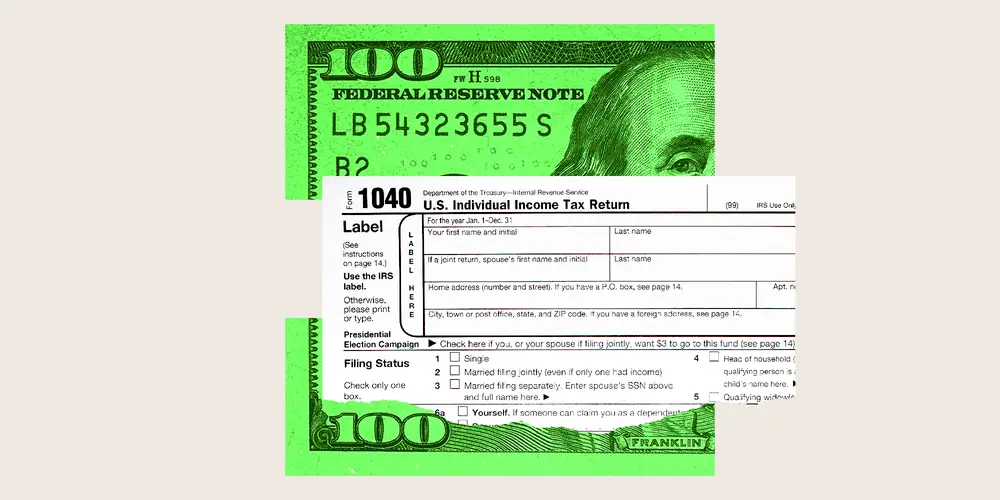Your taxes are going up in 2026, according to Morgan Stanley. Here are 5 tax-advantaged trades to make.

Morgan Stanley has some disappointing news for investors: your taxes are probably going up in the next few years.
The Tax Cuts and Jobs Act (TCJA) is inching towards expiration at the end of 2025, meaning that individual, corporate, and capital gains tax rates are subject to change.
One might assume that taxes will stay comparatively low under former President Trump and rise under Vice President Kamala Harris. But one strategist at Morgan Stanley says it’s not that simple.
With the US debt blowing past $35 trillion earlier this year, pressures to reduce the deficit are mounting on both parties. That, combined with uncertain election outcomes, increases the chances of a tax hike regardless of who takes office.
“Our expectation for higher-for-longer debt and deficits implies that taxes are likely to rise,” Monica Guerra, Morgan Stanley Wealth Management’s Head of US Policy, wrote in a note.
Below, she shares what to expect for future tax policy and 5 ways investors can prepare their post-election investment strategies to minimize tax risk.
Upcoming tax policies
While the exact details of each candidate’s tax plans are still up in the air, it’s clear that Harris and Trump have dramatically different plans for tax policies.
Harris has proposed raising the corporate tax rate from 21% to 28% and the net income investment tax rate from 3.8% to 5%. She has also voiced support for quadrupling the tax on stock buybacks from 1% to 4% and increasing capital gains taxes on realized and unrealized investments.
On the other hand, Trump and other Republicans are pushing to extend the TCJA in full and potentially consider further tax cuts, according to Morgan Stanley. Trump is also likely to rescind the green energy tax credits that Biden implemented under the Inflation Reduction Act.
Despite these differences, Morgan Stanley expects tax rates to increase no matter who takes office.
Investors should keep in mind that actual policy changes are usually less drastic than campaign promises, the bank said. And a divided Congress, which Morgan Stanley predicts is very likely in November, will only further reduce the likelihood of dramatic change.
With a divided legislature, Harris will need to compromise on some aspects of her policy to appease Republicans. Likewise, if Trump wins, it would be difficult for him to push through a comprehensive renewal of the TCJA.
There’s also the issue of the national debt, which is set to become 6.9% of GDP by 2034 at its current trajectory — levels that haven’t been hit since the Great Financial Crisis. Morgan Stanley believes Republicans will advocate for tax and spending cuts to try and balance the budget, while Democrats will try to increase taxes.
Guerra isn’t confident that the government will be able to reign in spending, though. She predicts that geopolitical conflict and various partisan interests will continue to push up future fiscal expenditures.
“Current Republican and Democratic proposals, respectively, are expected to add approximately $1.7 trillion and $560 billion to the deficit over 10 years,” Guerra wrote.
And if Congress can’t control runaway spending, the only other way to reduce the national debt is through higher taxes.
Tax-advantaged investing tips
Luckily for investors, there are some steps one can take to mitigate the impact of a tax hike.
For example, there are areas in the fixed income market that provide tax advantages.
Guerra recommends adding US Treasurys to your portfolio. Interest earned from Treasurys is only taxable at the federal level, meaning that investors avoid paying state and local taxes on their investment.
Municipal bonds are another tax-advantaged investment. These bonds are issued by states, cities, and other government entities to fund public works projects. Municipal bonds are exempt from federal income tax, and in some cases, state and local taxes as well. For example, an investor who purchases a New York City municipal bond can receive triple-tax-exempt status if they are a city resident.
Other tax-advantaged strategies include tax exempt mutual funds, tax-deferred annuities, and tax efficient funds.
Equity investors will be relieved to hear that there’s no need to change their stock picks. Neither income tax nor capital gains tax changes have been strongly correlated with stock performance — in fact, the correlations are all statistically insignificant. Typically, the stock market is more influenced by the business cycle than tax policy or political party, according to Morgan Stanley.
“In short, a higher tax burden does not translate directly to negative or positive equity returns,” Guerra wrote.






